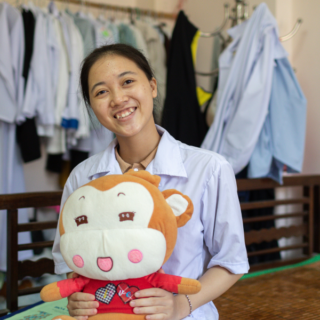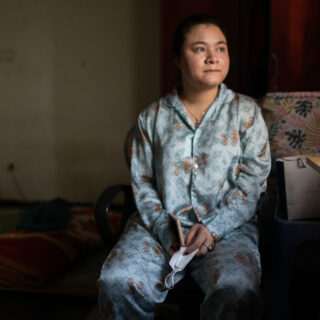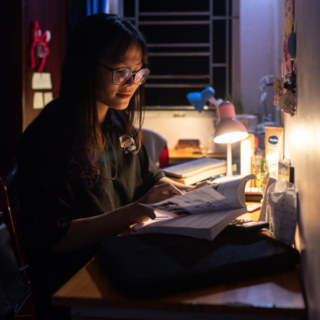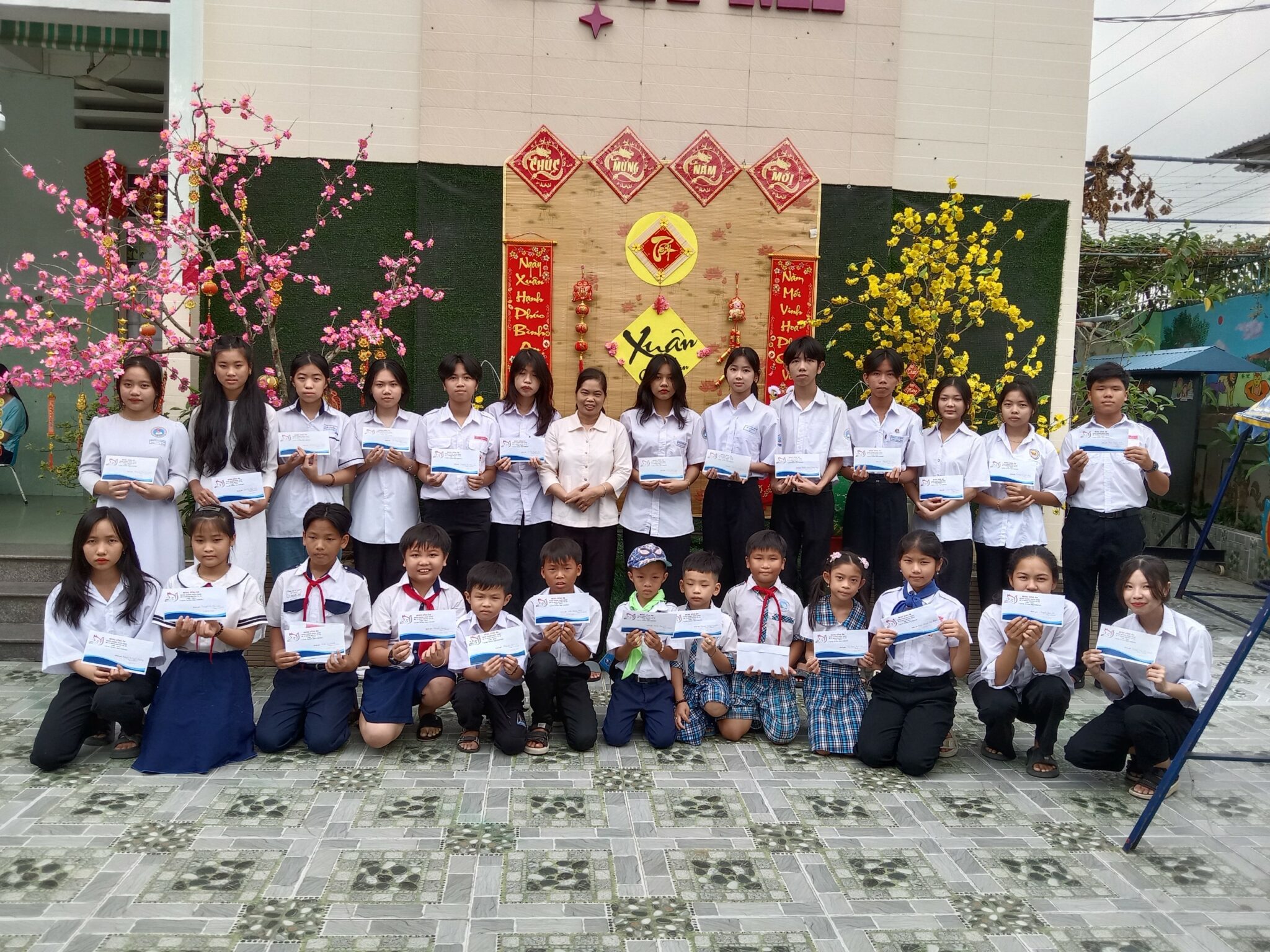
A Degree at Any Cost
While the Vietnamese government encourages young people to continue their studies through university, the living conditions of students in the capital, who may come from poor households, are sometimes challenging and perceived as an ordeal that does not always result in the expected outcome. Nonetheless, they continue to study.
Text and photos: Antoine Besson (translation)
I had longer studies than any of my friends because I was guaranteed that the medical degree was worthwhile. That it would be an insurance for my future.
“I had longer studies than any of my friends because I was guaranteed that the medical degree was worthwhile. That it would be an insurance for my future. However, I now earn less than most of them. I cannot even afford to pay for my sister’s education!”
Nina is bitter. The young woman, 24, lives in the heart of Hanoi, the national capital, but can only afford a small bedroom of approximately 10 square metres. She shares this space with her sister and two other students. Tears streaming down her face and eyes cast downwards, Nina’s sentences are punctuated by long silences. It is exhausting to hear about her financial struggles. Often her emotions overpower her.
DREAMING OF A DEGREE
Nina, the oldest child of the family, comes from Hòa Bình, a Vietnamese province 80 kilometres from Hanoi. Her mother, a day labourer in a brickwork, earns only 200,000 dongs a day, barely £7. It was insufficient to feed her family.
Therefore, Nina decided to pursue a university degree, believing that would be the only way for her to outperform her mother. To do so, she had to move to Hanoi for her study, paying for rent (2,500,000 dongs per month, around £90), and her school fees. To achieve her objectives, Nina contracted a 100-million-dong bank loan (£3500).
A small fortune for her, especially when she also has to finance her sister and two younger brothers’ education. Nina’s case is not unusual in Hanoi. Many students from various provinces and with underprivileged backgrounds have come to the capital to pursue a degree.
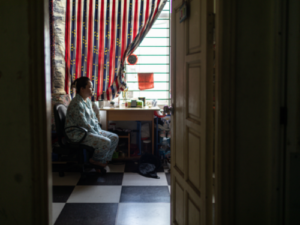
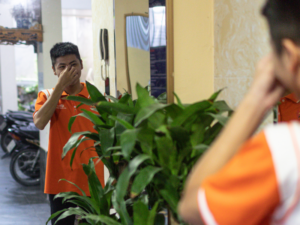
Between 2006 and 2016, higher education and universities developed significantly during Prime Minister Nguyen Tan Dung’s tenure. From 2016 to 2020, benefiting from the outstanding development, Prime Minister Nguyen Xuan Phuc’s government invested massively to improve the quality of the programmes. “Economic prosperity created favourable conditions for the government to dedicate funds to higher education”, wrote Nguyen Quang Anh in his thesis Vietnamese high education in the era of globalization (1906-2020) defended at the Bordeaux university. According to UNESCO, Vietnam has nearly 2 million students, out of a population of 97 million.
In 2019, 10.2% of the Vietnamese population aged over 25 had completed a three-year degree. According to the same study, this is almost five times less than in the United Kingdom (48,8%).
However, according to the doctorate student, the standards of the degrees delivered by the communist state are frequently not up to international standards: “Today, the Vietnamese society produces graduates and focuses its attention on the diploma rather than the curriculum and the teaching/learning process.
While only 20% of lecturers at Vietnam’s best-ranked universities hold a doctorate (this rate is lower at lower-ranked universities), up to 50% of Vietnamese ministers and administrative officials are doctors or professors. Observers might find it surprising that universities have a relatively low number of doctorate graduates, considering the significant number of high-ranking government officials”.
CORRUPTION AND EMPLOYMENT
The quality of the curriculum is not the only obstacle that fresh graduates encounter. For Nina, the main goal of university is to gain access to a well-paid career. Each year, 60% of university graduates are unemployed, while the job market suffers from a shortage of qualified workers.
Why is there such a gap?
Beyond the faults in the different sectors, Nina points out the corruption: “The only way for a doctor in Hanoi to have regular patients and earn a living is to work part-time in a hospital”. Such positions are inaccessible for a student lack of resources. Nina claimed she would have to pay the hospital 800 million dongs (over £27,000) to be considered for a position. “The corruption perception index in Vietnam in 2017 reached 35 points (100 being the cleanest, 0 being the most corrupt), ranking them the 107th out of 180 countries. Thus, the inefficient administration, the widespread corruption, and resource waste are short-term economic constraints. The rampant corruption within some of the country’s top public offices is an important cause, both direct and indirect, of the country’s impoverishment”, confirms Nguyen Quang Anh in his analysis.
TIGHT LIVING SPACES
Before corruption and unemployment, housing is a great obstacle for students. Nam is in his third year of informatics studies at the University of Transports and Communications. He lives with his two sisters, one of whom is married and has a 10-month-old child. They all share a 10-square-metre bedroom that barely fits two bunk beds and a desk. Nam would like to relocate, but lacks the resources to do so: “When my niece was born, none of us slept for four months. I want to graduate as quickly as possible to escape from this closet!”
Trong, 19, is in his second year of informatics studies at Hanoi Polytechnique University, and shares a room with three other students for 4.5 million dongs (£150). While he benefits from decent housing, he is unable to fully enjoy it as he works in addition to his education, as most students from poor families do.
Trong found a job as a night guard in a hotel in Hanoi. “I study during the day and work at night,” the young man explains, with drawn features and tired eyes. For most students from unprivileged families, studying in Hanoi means a lot of sacrifices, which most of them willingly make in the hope of finding a lifeline for themselves and their families.
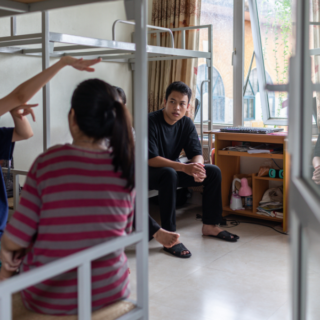
Having to work prevents most disadvantaged students from accessing state-provided accommodation, which was put in place to facilitate access to higher education. Thi Kim, 21, is a student in traditional medicine, explaining: “Most state dormitories have strict hours, which makes it impossible for us to have a part-time job on top of our studies”.
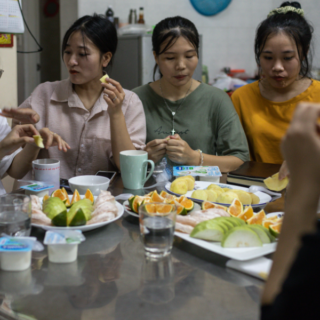
She lived in one of those facilities during her first year in Hanoi. She now resides with three other students, two of whom share a double bed and the other sleeping on mats. The kitchen, bathroom and toilets are shared with the rest of the building, which amounts to twelve people.
“It was even worse in the state dormitories, with six people per room!”. Thi Kim pays 15 million dongs (£510) per year for tuition fees, which she partly finances by tutoring Math and English. “This kind of work can accommodate my schedule, which is constantly changing due to my classes and internship”.
Her family is too poor to support her. Thi Kim reveals: “I would rather not ask them for money because they would feel obligated to take on debt while I still have three siblings at home”
The disappointment is proportional to the sacrifices made: enormous. However, sometimes the realisation occurs earlier.
STUDIES AT ANY COST!
In My Dinh, an area away from the capital centre, the paths are subdivided into ever narrower and more labyrinthine alleys. The houses seem to have been built randomly, with little urban planning.
Thu Ha is 22 years old, but looks like she is 16 due to the malnourishment signs. She lives in a 9-square-metre bedroom with her roommate. To reach her attic, one has to climb several flights of stairs and follow a maze of narrow corridors between tightly packed buildings. The only window of the room is blocked by a building for a long time, reducing the already scarce circulation of stale air and depriving the space of natural light. Only a neon light illuminates Thu Ha, who welcomes us while coughing. She is learning French and preparing for a degree in tourism.
Thu Ha has lost her parents when they fled their creditors, vanishing into thin air, leaving behind their daughter.
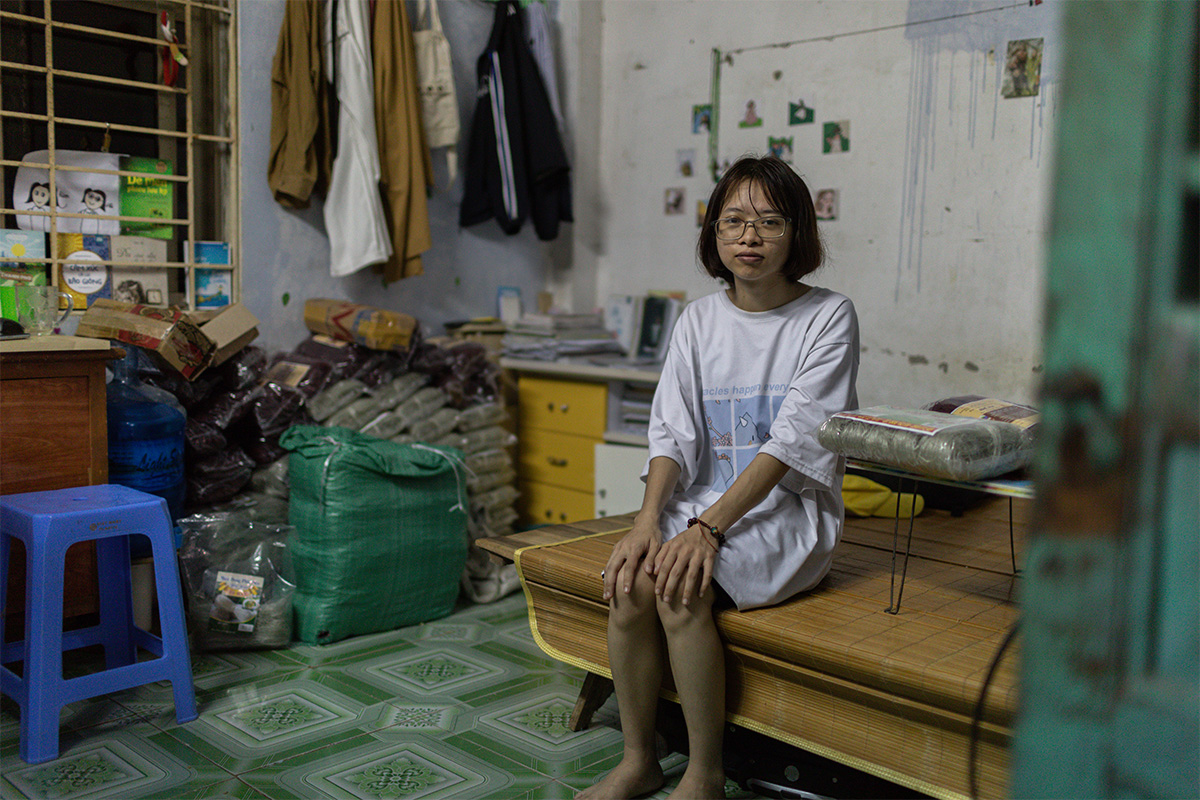
Hanging, on the derelict walls, there is a poster of a lavender field, the image of hope and an escape. At the other end of the room, a pile of vermicelli bags awaits.
Unfortunately, this is a common occurrence in some parts of the country, when families cannot pay off their accumulating debts. This room is all she can afford, significantly lower than the usual rates at “only” 1.2 million dongs (£45). But to pay for it, Thu Ha has several small jobs: she tutors and sells vermicelli online, which she brings from Tan Boi, her village, and stores in her bedroom. The young girl does not complain, but she is aware of her deteriorating health: her vision is getting worse, as she pushes her glasses up her sweaty, stubby nose.
She was also diagnosed with malnutrition during a university medical check-up, but she cannot afford medical treatment.
Despite everything, Thu Ha is determined and want to graduate at all costs, even if she may not be able to practise the job for which she has been training, because of her declining health. Just like Nina, Nam, Throng, and Thi Kim, hope is deeply ingrained in Thu Ha’s being. It is fragile but incredibly strong. The hope that things will get better, as written on her shirt:
Miracles happen every day
Dear sponsors, who support Vietnamese students, THANK YOU! Your sponsorship is an invaluable support for our young people!
Orientation forums and summer camps 2023!
The end of the school year in Vietnam is fast approaching for the sponsored children and students. There is no thought of abandoning them! Our local teams are ready to launch the summer camps!
Many games and activities will be offered to sponsored children of all ages. Thanks to the orientation forums, the students will be able to reflect on their professional project. These camps will also be an opportunity for some sponsored children to brush up on their skills so that they can start the new school year with confidence.
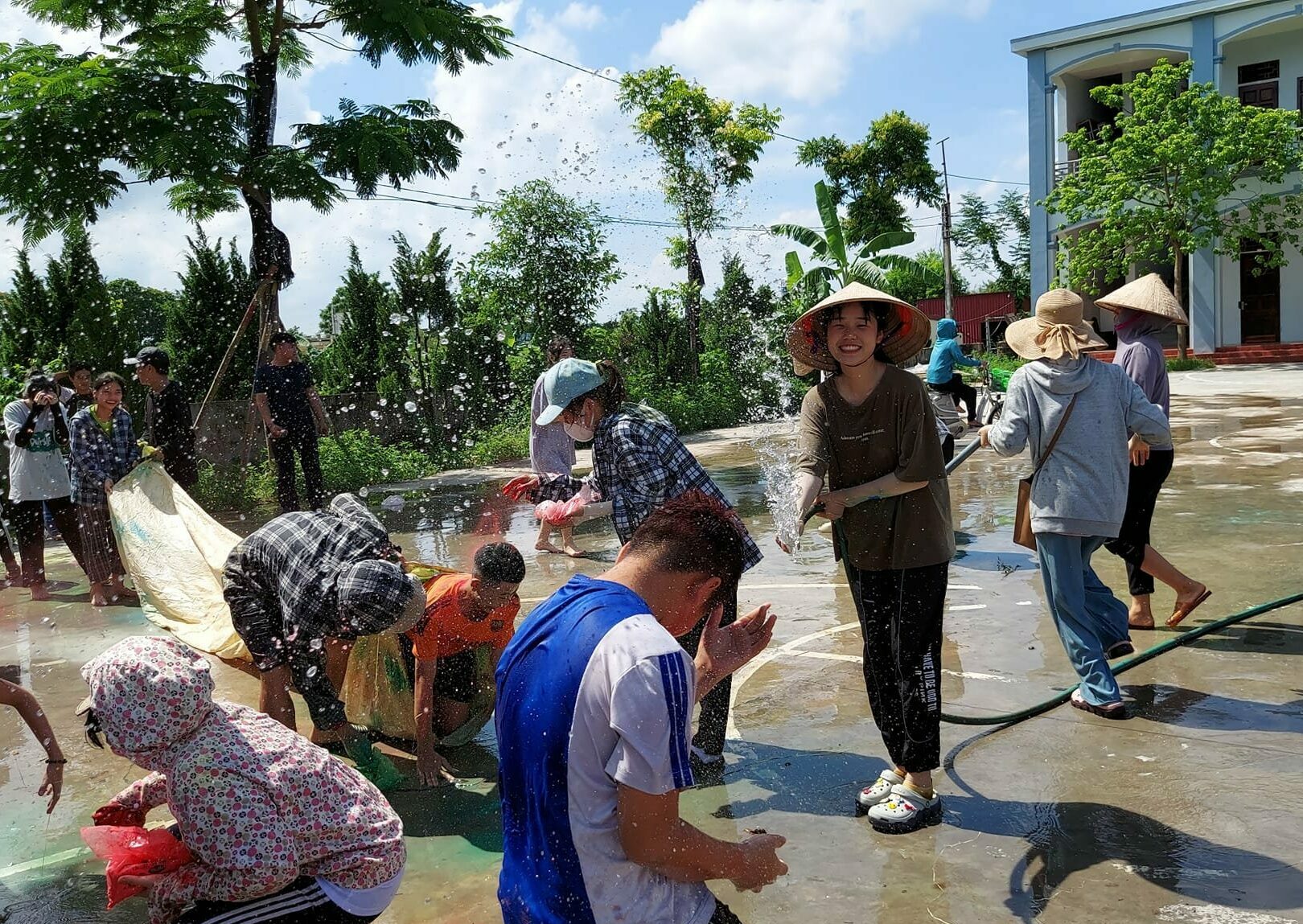
Read our latest news in Vietnam

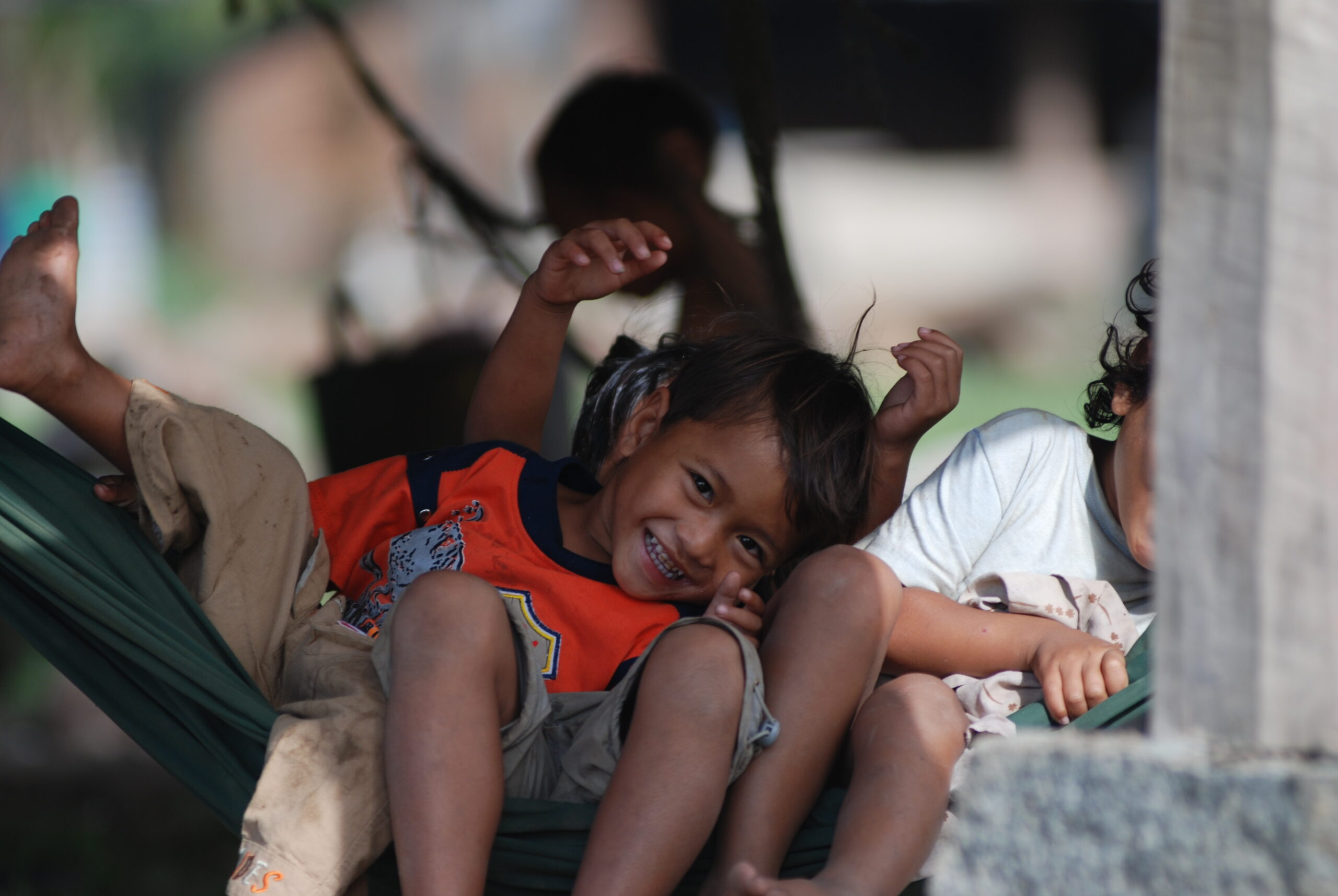
Closing the Gap: Boosting Healthcare Education Initiatives for a Healthier Vietnam
Author: Shi Xian Vietnam faces a notable funding gap in its healthcare education sector, impacting nonprofit organisations which play a crucial role in promoting […]
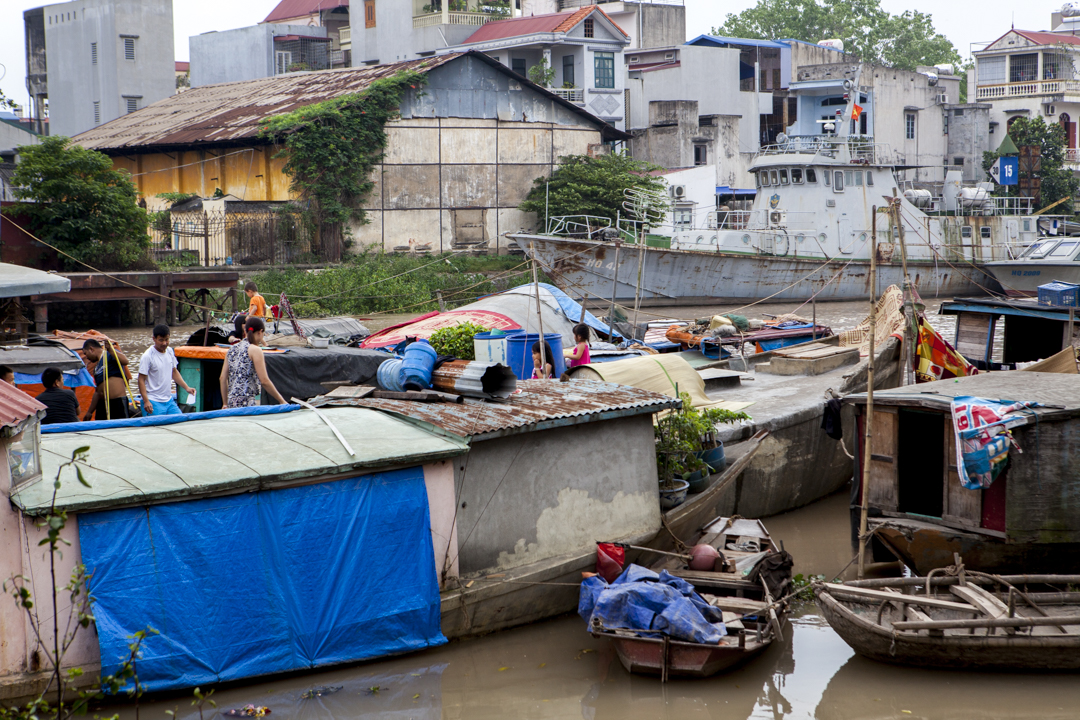
Transforming Deaf Education in Vietnam: The QIPEDC Project Success
(*QIPEDC: Quality Improvement of Primary Education for Deaf Children Project) Author: Shi Xian

